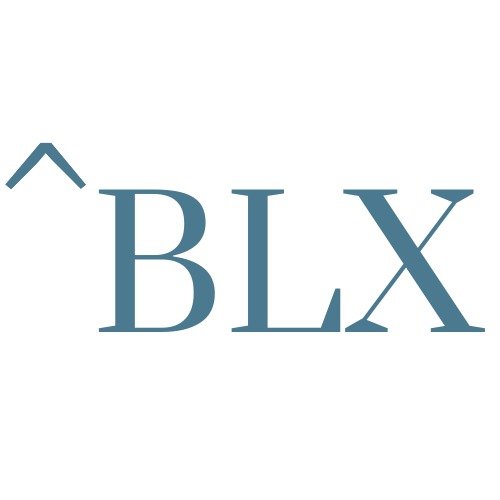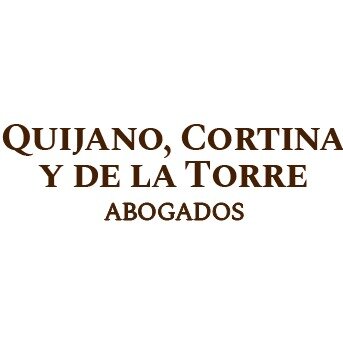Best Antitrust Litigation Lawyers in Mexico City
Share your needs with us, get contacted by law firms.
Free. Takes 2 min.
List of the best lawyers in Mexico City, Mexico
About Antitrust Litigation Law in Mexico City, Mexico
Antitrust litigation in Mexico City refers to the legal processes and disputes arising from claims of anti-competitive practices, such as monopolies, cartels, and abuse of market dominance, within the city or involving entities operating in its jurisdiction. The goal of antitrust laws is to preserve fair competition, protect consumers, and ensure efficient market conditions. Mexico City, as the country’s economic and business hub, frequently becomes a focal point for antitrust allegations and investigations. These cases are typically regulated by federal law, but their application and enforcement impact businesses and consumers directly in the capital region.
Why You May Need a Lawyer
Antitrust litigation can be complex and highly technical, often involving extensive investigations and significant financial risks. Here are common scenarios when you may require the support of a specialized antitrust lawyer in Mexico City:
- Facing an investigation or sanction from competition authorities, such as the Federal Economic Competition Commission (COFECE).
- Involvement in alleged collusive practices like price fixing, market division, or bid rigging.
- Accusations of abusing market power through actions like predatory pricing or refusing to deal.
- Needing to defend or file civil damages claims due to anti-competitive conduct.
- Considering mergers or acquisitions that might raise competition concerns or require clearance from authorities.
- Ensuring compliance with local and federal antitrust laws to avoid penalties.
An experienced attorney can help interpret the law, represent you before authorities and courts, and guard your business or personal interests through every stage of litigation or investigation.
Local Laws Overview
Antitrust litigation in Mexico City is predominantly governed by federal law, specifically the Federal Economic Competition Law (Ley Federal de Competencia Económica), which establishes the rules to promote market competition. Here are key aspects:
- Prohibited Practices: The law prohibits absolute monopolistic practices such as collusive agreements between competitors, as well as relative practices, like abuse of dominance that may limit competition.
- Merger Control: Certain mergers and acquisitions must be notified and cleared to prevent concentration that could lessen competition.
- Enforcement Bodies: COFECE is the main authority, responsible for investigations, imposing sanctions, and issuing competition policy guidelines. The Federal Telecommunications Institute (IFT) covers the telecommunications and broadcasting sectors.
- Sanctions: Penalties can be severe and may include hefty fines, damages, and sometimes criminal charges against individuals involved in illegal anti-competitive acts.
- Litigation Process: Legal proceedings may take place before administrative bodies, the Federal Judiciary, or even the Supreme Court, depending on the complexity or constitutional relevance of the case.
Frequently Asked Questions
What is considered an antitrust violation in Mexico City?
Antitrust violations include illegal agreements between competitors (cartels), abuse of market dominance, illegal mergers, and any conduct that unfairly restricts competition under the Federal Economic Competition Law.
Who enforces antitrust laws in Mexico City?
The Federal Economic Competition Commission (COFECE) and, for telecommunications and broadcasting, the Federal Telecommunications Institute (IFT) enforce antitrust laws and conduct investigations or impose penalties.
Can private parties file antitrust lawsuits?
Yes, companies or individuals harmed by anti-competitive conduct can file legal actions for damages in Mexican courts after certain procedural steps and qualifications are met following a determination by COFECE.
What is the process if I am investigated for an antitrust violation?
COFECE typically conducts a confidential investigation, requests information, and may conduct site visits. If evidence is found, formal proceedings are initiated, and you will have the chance to defend yourself before a final resolution is issued.
What penalties can result from antitrust violations?
Penalties range from significant fines on companies and individuals, disgorgement of profits, orders to cease illegal activity, to possible criminal charges in extreme cases involving recidivism or obstruction of justice.
Are merger controls mandatory in Mexico?
Yes, certain mergers, acquisitions, or other forms of concentration must be pre-notified and cleared by COFECE or IFT if they meet legal thresholds based on transaction value or parties’ revenue.
How long do antitrust investigations take in Mexico City?
The duration varies but preliminary investigations can take several months, followed by a formal proceeding that may last a year or longer, depending on the case complexity and cooperation of the parties involved.
Do antitrust laws apply to foreign companies operating in Mexico City?
Yes, any company or individual, domestic or foreign, that participates in the Mexican market, including Mexico City, must comply with Mexican antitrust law regarding their conduct in the country.
Can individuals be held liable for antitrust breaches?
Yes, responsible individuals can be fined or even face criminal charges for certain types of antitrust violations, particularly in cases involving cartels or obstruction of authorities.
When should I seek legal advice regarding antitrust matters?
You should consult a legal expert as soon as you anticipate a merger, are approached about entering into agreements with competitors, receive communication from COFECE or IFT, or if you suspect any activity within your organization may breach competition laws.
Additional Resources
If you are seeking more information or assistance regarding antitrust litigation in Mexico City, the following resources may be valuable:
- Federal Economic Competition Commission (COFECE): The main governmental body for competition matters, offering guidelines, news, and complaint forms.
- Federal Telecommunications Institute (IFT): The authority for competition issues in telecommunications and broadcasting.
- Procuraduría Federal del Consumidor (PROFECO): Supports consumer complaints related to unfair business practices.
- Local Bar Associations: Organizations such as the Barra Mexicana, Colegio de Abogados provide directories for qualified competition law specialists.
- Legal Aid Clinics and University Programs: Some universities in Mexico City offer free or low-cost legal clinics focused on business and competition law.
Next Steps
If you believe you need legal guidance or are facing an antitrust issue in Mexico City, consider the following steps:
- Document all relevant facts, contracts, and communications related to your situation.
- Contact a qualified antitrust or competition lawyer with experience in Mexican law and the local context.
- Request an initial consultation to discuss your case, potential risks, and available legal strategies.
- Follow the legal advice provided closely and respond promptly to any requests from legal counsel or authorities.
- Stay informed about your rights and responsibilities under Mexican competition law.
Taking prompt action and engaging with experienced professionals increases your chances of a favorable outcome and minimizes the risks associated with antitrust litigation in Mexico City.
Lawzana helps you find the best lawyers and law firms in Mexico City through a curated and pre-screened list of qualified legal professionals. Our platform offers rankings and detailed profiles of attorneys and law firms, allowing you to compare based on practice areas, including Antitrust Litigation, experience, and client feedback.
Each profile includes a description of the firm's areas of practice, client reviews, team members and partners, year of establishment, spoken languages, office locations, contact information, social media presence, and any published articles or resources. Most firms on our platform speak English and are experienced in both local and international legal matters.
Get a quote from top-rated law firms in Mexico City, Mexico — quickly, securely, and without unnecessary hassle.
Disclaimer:
The information provided on this page is for general informational purposes only and does not constitute legal advice. While we strive to ensure the accuracy and relevance of the content, legal information may change over time, and interpretations of the law can vary. You should always consult with a qualified legal professional for advice specific to your situation.
We disclaim all liability for actions taken or not taken based on the content of this page. If you believe any information is incorrect or outdated, please contact us, and we will review and update it where appropriate.

















